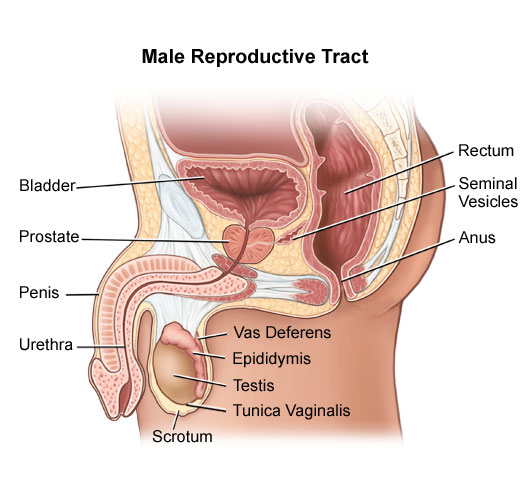Safe and Satisfying: Practices for Men’s Sexual Health

Understanding the Importance of Sexual Health for Men
Sexual health is an integral component of overall wellness for men. Regrettably, discussing sexual health often feels like taboo due to societal norms, leading men to overlook the importance of understanding and maintaining their sexual health. It encompasses more than just protection against sexually transmitted infections or ensuring successful reproduction. It is about recognizing the anatomy, understanding the physiological processes, and adapting to changes throughout the various stages of life. Proper knowledge about sexual health can help men detect problems early and seek the necessary medical help promptly.

Promoting sexual health does not limit to just the physical aspects, but also includes mental and social well-being related to sexuality. There is an intricate relationship between sexual health and overall physical and mental health. An increased fitness level, for instance, has shown to improve sexual performance and satisfaction, and lessen the chances of developing sexual health issues like erectile dysfunction. Additionally, a balanced diet rich in essential nutrients, adequate hydration, and a good night’s sleep, all play a role in maintaining optimal sexual health. Emotional health, too, is crucial as stress, anxiety, depression, and self-esteem issues can have deleterious effects on a man’s sexual health. Consequently, improving sexual health necessitates a holistic approach where all aspects of a man’s life are given due attention. It is essential to remember that open conversations, routine checkups, and safe practices are crucial, and there is no shame in seeking help and advice.
Understanding Male Anatomy and its Role in Sexual Health

The male anatomical system plays a pivotal role in many aspects of sexual health, showcasing the interconnection between physiological functions and overall wellness. The most essential elements include the penis, scrotum, prostate, seminal vesicles, and testicles. These parts function together in sexual response – a process that involves a complex interplay of hormones, nerves, blood vessels, and muscles. An understanding of how these elements work is vital to maintaining and improving one’s sexual health.
For example, robust blood flow is fundamental for erectile function. Achieving and maintaining an erection hinges greatly on the health of one’s cardiovascular system. Additionally, the prostate and seminal vesicles are responsible for producing seminal fluid, which is vital in fertility concerns. Disturbances in their function could lead to issues concerning not only sexual performance but also mental wellness. The need for a greater understanding of how male anatomy impacts sexual health is thereby essential, ultimately contributing to enhanced overall health, improved relationships, and a better quality of life.
The Connection between Physical Fitness and Male Sexual Health
Physical fitness can directly influence male sexual health in several significant ways. Regular exercise promotes healthy blood circulation, crucial for male sexual function. Cardiovascular exercises, like running and swimming, can help maintain a healthy heart, leading to improved erection quality and endurance during sexual activity. Additionally, exercises targeting the pelvic floor muscles can improve ejaculatory control and enhance sexual satisfaction. Strength training, when done in moderation, can help maintain normal testosterone levels, crucial for male libido and sexual function.
Proper fitness doesn’t solely involve regular exercise; it also calls for a well-balanced diet, proper hydration, and sufficient restorative sleep. High levels of chronic stress, poor dietary choices, and lack of sleep can negatively impact testosterone levels, resulting in decreased libido and even erectile dysfunction. Meanwhile, staying hydrated can help ensure that the body can perform vital functions, including those related to sexual performance. Incorporating these lifestyle elements into regular practices also influences overall physical health, emotional well-being, and sexual health. For a comprehensive understanding of their health, men must respect their bodies, making conscious decisions to maintain or improve their lifestyles for their overall and sexual health.
Physical fitness can have a positive impact on sexual health in various ways, such as:
- Improving blood flow and vascular function, which can enhance erectile function and reduce the risk of erectile dysfunction (ED). ED is a common condition that affects many men, especially as they age. It occurs when there is insufficient blood flow to the penis, resulting in difficulty getting or maintaining an erection. Physical fitness can improve blood flow by increasing the heart rate, oxygen delivery, and nitric oxide production in the body.
- Strengthening the pelvic floor muscles, which support the bladder, bowel, and reproductive organs. These muscles are also involved in sexual arousal and orgasm. Physical fitness can strengthen these muscles by engaging in exercises such as Kegels, squats, lunges, and planks.
- Enhancing body composition and self-esteem, which can boost confidence and attractiveness. Physical fitness can help men achieve a healthy weight, body shape, and muscle tone by burning calories and fat through aerobic exercise. This can improve their appearance and self-image, which can make them feel more comfortable with their bodies and more attractive to their partners.
- Reducing stress and improving mood, which can improve emotional health and sexual satisfaction. Physical fitness can help men cope with stress by releasing endorphins, serotonin, and dopamine in the brain. These are neurotransmitters that regulate mood, motivation, pleasure, and reward. Physical fitness can also improve mood by providing a sense of accomplishment, enjoyment, and relaxation.
Eating Right: Nutrition Tips for Enhanced Sexual Health
A diet comprising of nutritious foods contributes significantly to the enhancement of men’s sexual health. Not only does a balanced meal aid in maintaining the physique necessary for sexual performance, but it also provides the essential minerals and vitamins required to regulate sex hormones. A diet rich in fruits, vegetables, lean proteins, and whole grains helps to support health in overall and sexual wellness in men. Zinc, found in foods like oysters, beef, and spinach, aids in testosterone production, while Nitrate, loaded in fruits, vegetables, and grains, helps to increase blood flow by relaxing the blood vessels.
On the other hand, unhealthy eating habits can cause issues in men’s sexual health. Foods high in fats, sugars, and sodium can lead to weight gain, obesity, and other health problems that might have a harmful effect on sexual function. Lifestyle diseases such as high blood pressure, diabetes, and heart disorders can lead to erectile dysfunction, lower sexual drive, and hormonal imbalance. Therefore, it is crucial to incorporate a balanced diet into one’s routine to ensure both physical and sexual well-being. Through healthy eating habits, men can improve their sex lives while also enhancing their overall health.
Hydration and Its Role in Maintaining Optimal Sexual Health
Hydration is a key factor in maintaining optimal male sexual health yet it is often overlooked. Staying adequately hydrated is essential for the proper functioning of the body including the reproductive system. Adequate hydration aids in maintaining the appropriate volume of blood and also beneficial in the production of hormones in the body. Blood volume is particularly important when it comes to male sexual health as erections are essentially caused by a rush of blood to the penis. Dehydration can lead to a reduction in this blood flow, potentially leading to difficulties in achieving and maintaining erections.

In addition to this, hydration plays a significant role in the production and health of sperm. Research indicates that dehydration may affect the volume and viscosity of semen. The standard semen volume is between 1.5 ml to 5 ml, and dehydration may decrease this volume, which could potentially impact fertility. Furthermore, Hydration aids in the body’s production of testosterone – the key sex hormone in males. Interestingly, a study published in the Journal of Clinical Endocrinology and Metabolism found that men who were hydrated showed increased testosterone levels compared to their dehydrated counterparts. Thus, maintaining optimal hydration is not just about sexual performance but also about sexual health and fertility.
The Impact of Mental Health on Male Sexuality
Mental health plays an integral role in every aspect of an individual’s life, including sexual health. Psychological problems such as depression, anxiety, stress or emotional issues can significantly affect the sexual desires of an individual that can lead to sexual dysfunction. A study published in the Journal of Sexual Medicine quoted that 41.8% of men with erectile dysfunction also reported symptoms of anxiety and depression. Thus, mental illnesses may not only cause distress in general life but can also degrade one’s sexual health to a great extent.
Furthermore, other mental health disorders, like body dysmorphic disorder, may lead to issues such as fear of sexual interaction which can hamper intimacy resulting in dissatisfaction or failures in sexual activities. The fear of performance, or the high demands of perfectionism, can also affect a man’s ability to perform in sexual activities. This clearly establishes a connection between mental well-being and male sexual health. In the overarching picture of sexual health, it is critical to create an open dialogue about mental health issues and their impact on male sexuality, to promote healthier relationships and sexual satisfaction.
How Regular Checkups Can Improve Male Sexual Health
Regular health checkups stand as a pivotal cornerstone in the maintenance and improvement of male sexual health. Despite being often overlooked, these consultations, screenings, and tests enable men to be proactive about their health. Regular checkups provide an opportunity to detect potential health issues early on, many of which have a direct correlation to a man’s sexual health, such as cholesterol, blood pressure, prostate health, and testosterone levels. For instance, prostate checks allow for early detection of prostate cancer, the second most common cancer among men. Similarly, monitoring testosterone levels can help detect any potential hormonal imbalances, which can negatively influence male sexual health.
In addition to early detection, regular medical checkups also present an opportunity for discussion – an opportunity a man can utilize to voice out his sexual health concerns, questions, and difficulties. This open talk with healthcare practitioners not only helps to address problems early on but also to de-stigmatize the topic of male sexual health in general. It’s crucial for every man to understand that sexual health is an integral part of their overall well-being and maintaining optimal health requires serious consideration and attention to it. Regular checkups therefore equip men with knowledge about their body and sexual health, contributing significantly to their sexual health improvement.
The Role of Safe Sex in Maintaining Men’s Sexual Health
The practice of safe sex is a central matter in ensuring robust sexual health for men. With the increasing rate of sexually transmitted infections, this topic has become more relevant than ever. According to the Centers for Disease Control (CDC), there were nearly 2.5 million diagnosed cases of chlamydia, gonorrhea, and syphilis in the United States alone in 2019. These STIs can lead to dire health complications including infertility, epididymitis, or enhanced susceptibility to HIV. This indicates the vital importance of using protection such as condoms during sexual encounters, which drastically reduces the risk of acquiring or transmitting STIs.
In addition to the physical ramifications, the consequences of unsafe sex also extend to mental health. An infection, the anxiety associated with potential exposure, or the impact on a relationship can all contribute to stress, depression, and anxiety. The National Institutes of Health (NIH) have numerous studies indicating a correlation between sexual health and overall mental well-being. Utilizing preventative measures not only safeguards physical health, but also alleviates mental stress by providing assurance and confidence in sexual interactions. Therefore, safe sex is a two-fold shield, protecting both physical and mental well-being, and ensuring the maintenance of overall sexual health.
How to Communicate Effectively About Sexual Health
Communicating effectively about sexual health is a crucial part of maintaining a healthy relationship and overall well-being. Yet, many people experience discomfort or fear when discussing this topic, particularly men. It’s important to understand that sexual health is a normal aspect of human life, and open dialogue can effectively address and resolve many issues, including those related to performance, satisfaction, or disease. It’s essential to choose the right setting for such discussions where both can share their feelings without any hesitation or embarrassment.
Moreover, framing discussions about men’s sexual health within the broader context of health and wellness can alleviate some of these discomforts, fostering a more holistic perspective. One effective way to achieve this is by integrating the subject within everyday health and wellness routines. For instance, incorporating it during discussions on proper nutrition, regular exercise, mental health, or regular checkups with the GP. A supportive, non-judgmental atmosphere encourages a more open dialogue about men’s sexual health. Such an environment emphasizes not only respect and understanding but also the acceptance that sexual health is an integral part of overall individual well-being.
Addressing Common Male Sexual Health Concerns
The realm of men’s sexual health can often be rife with concerns, both common and unique. Erectile dysfunction, premature ejaculation, and concerns about libido are prevalent and perfectly normal. Statistics reveal that, for instance, about half of men aged between 40 and 70 have erectile dysfunction to some degree, and approximately one in three men report having premature ejaculation at some point. These common concerns can often lead to anxiety and distress. However, scientific advancements made in men’s sexual health have proven it: Most of these conditions are treatable, and proper knowledge and open conversations can pave the way for healthy resolutions.
Indeed, it takes more than just understanding; effective consultative dialogues with healthcare providers are essential in assuaging such concerns. By discussing openly about any issues they might be facing, men can gain better insights and possible treatment options for their conditions. This level of communication can help mitigate the stigma often tied to men’s sexual health concerns and assist in driving toward positive, long-lasting resolutions. Remember, sexual health issues are not a reflection of any individual’s masculinity or worth, but are medical conditions that require attention and care. Regular check-ups paired with an open dialogue with caregivers can truly shape the trajectory of men’s sexual health.
The Effect of Drugs and Alcohol on Male Sexual Health
When discussing male sexual health, the impact of drug and alcohol cannot be overlooked. These substances can have a significant detrimental effect, hampering healthy sexual performance and causing other related issues. According to the American Addiction Centers, heavy drinking can lead to erectile dysfunction, lower hormone production, and a diminished libido. Regular drug usage also does not leave the sexual health of men unscathed. Cocaine, for instance, has been known to cause sexual dysfunction and decrease sperm production, as stated in a report published by the National Institute on Drug Abuse.

Beyond their biological consequences, substances like drugs and alcohol can create a ripple effect impacting men’s mental health and relationships—two elements conventially linked to sexual well-being. Chronic consumption often leads to addiction which, in turn, triggers anxiety, depression, or other mental illnesses. This could induce negative sexual experiences, leading to guilt, fear or sexual performance anxiety over time—a damaging cycle for sexual health. Furthermore, the inability to maintain satisfactory sexual lifestyle can strain personal relations and self-esteem, causing even deeper mental health issues. This underlines the multifaceted, highly damaging influence of drugs and alcohol on male sexual health.
Sleep and Its Connection to Optimum Sexual Health
Adequate sleep is an undervalued but crucial element of male sexual health. Various scientific studies affirm the significant role it plays in maintaining hormonal balance, testosterone levels in particular. Testosterone, the key sex hormone in men, controls functions like sexual desire, erections, the production of sperm, and even affects mood. The production cycle of testosterone is closely linked with sleep cycles. According to the National Sleep Foundation, testosterone levels rise during sleep and decrease during periods of wakefulness. Hence, any disruption in sleep patterns can negatively impact testosterone production and, subsequently, sexual health. Among men suffering from sleep disorders like sleep apnea and insomnia, a prevalence of reduced libido and erectile problems is often observed.
A 2011 study published in the Journal of the American Medical Association found that young healthy men who were deprived of just one week of sleep – decreased sleep duration of roughly five hours per night – had lower testosterone levels, compared to when they were fully rested. Additionally, research conducted by the University of Michigan shows a strong correlation between sleep apnea and erectile dysfunction. In fact, men with severe sleep apnea are as much as 60% more likely to develop erectile dysfunction. These findings highlight the strong connection between sound sleep and optimum sexual health, emphasizing the importance of restful, uninterrupted sleep for maintaining sexual wellbeing in men. The relationship between sleep and male sexual health implies that interventions aimed at improving sleep quality could also improve sexual function. It is crucial for men to understand the essential role of good sleep in fostering healthy hormonal balance and promoting overall sexual health. A greater awareness can encourage them to seek professional help when facing sleeping disorders, potentially preventing potential disturbances in their sexual health.
Managing Stress for Better Sexual Health
Being under constant stress often leads to severe strain, potentially tarnishing the state of sexual health in men. Stress hormones such as Cortisol and Adrenaline, secreted by the adrenal glands, may interfere with the hormones that support healthy sexual function when frequently present in high levels. This physiological reaction can lead to erectile dysfunction(ED), lower sexual drive, and, in severe cases, infertility. An increasing body of research supports this claim, including a widely known study published in Fertility and Sterility journal, which suggests that high stress levels can result in decreased sperm count and motility.
One of the most effective methods to manage stress involves implementing a consistent physical exercise routine. Regular physical activity of moderate intensity, like a brisk walk or light jog, helps reduce the secretion of stress hormones while stimulating the release of endorphins – the body’s natural mood elevators. Not only does this enhance the physical state of the individual, but it also bolsters mental health by fostering a more positive mindset, essential to considerable sexual wellness. Other effective stress management strategies include partaking in relaxation activities, maintaining a healthy diet, and ensuring adequate sleep. These are primary amongst the numerous ways men can alleviate stress levels and subsequently enhance their sexual health.
Understanding How Age Affects Male Sexual Health
Aging is a natural process that inevitably has a significant impact on various aspects of men’s sexual health. As men age, they often notice physical changes that can affect their ability to perform or enjoy sex. These changes can include reduced sexual desire, erectile dysfunction, or decreased stamina. Research indicates that about 40% of men are affected by erectile dysfunction at age 40, and this percentage increases by about 10% each decade. Additionally, changing hormonal levels can lead to a decrease in sexual appetite. It’s important to remember that these changes are a normal part of aging and should not automatically be associated with an underlying health problem.
However, the effects of age are not solely physical. The psychological impact of aging can also play a critical role in male sexual health. Feelings of anxiety or depression associated with growing older can negatively affect sexual desire and performance. Furthermore, societal expectations regarding male virility can amplify these psychological stressors, creating additional pressure and stress. It’s crucial for men to understand that it’s not only okay but indeed quite common to experience changes in sexual health as they age. Regular and open conversations with healthcare providers can help manage these changes, and various therapeutic approaches, such as counseling or medication, can assist in maintaining optimal sexual health. Learning to communicate effectively about these changes with partners is another vital element to maintaining fulfilling sexual relationships in later life.
The Connection between Body Image and Sexual Satisfaction
Body image serves as one of the critical factors in sexual satisfaction amongst men. The concept of body image relates to how individuals perceive their own bodies and how they believe others perceive it. This perception significantly impacts their self-esteem, confidence, and overall mental health, thus directly influencing their sexual satisfaction. Research suggests that men who are satisfied with their bodies tend to experience a higher degree of sexual satisfaction. Conversely, men’s sexual satisfaction may be adversely impacted by negative body image due to anxieties about appearance or body size.
The impact of body image on sexual satisfaction is not merely subjective but has scientific backing. A study published in the Journal of Sexual Medicine discovered a profound connection between these aspects. According to this study, body image plays a crucial role in erectile function, as men with negative body self-perceptions were more likely to suffer from erectile dysfunction. Moreover, body satisfaction contributes to overall sexual satisfaction by influencing sexual self-esteem and sexual performance. This comprehensive understanding of the link between body image and sexual satisfaction underscores the need for men to pay attention to their perception of their bodies and overall physical wellbeing.
What is the relationship between body image and sexual satisfaction?
Body image and sexual satisfaction are intrinsically linked. Men who feel comfortable and confident in their bodies are more likely to experience higher levels of sexual satisfaction. This is due to increased self-esteem and less anxiety during intimate situations.
How does physical fitness affect male sexual health?
Physical fitness can greatly improve male sexual health. Regular exercise can increase libido, improve sexual performance, and boost overall confidence. It can also improve blood circulation, which is important for erectile function.
What role does nutrition play in enhancing male sexual health?
Nutrition is essential for maintaining good sexual health. A balanced diet can lead to increased energy, improved blood circulation, better hormone production, and enhanced mood, all of which can contribute to improved sexual health and satisfaction.
How does mental health impact male sexuality?
Mental health has a significant impact on male sexuality. Conditions like depression, anxiety, and stress can decrease libido and interfere with sexual performance. Mental health support and treatment can thus greatly enhance a man’s sexual health.
Why are regular medical check-ups important for male sexual health?
Regular medical check-ups can detect potential health issues that might affect sexual performance. They can also be a great opportunity to discuss sexual health concerns with your healthcare provider.
How does the misuse of drugs and alcohol affect male sexual health?
Misuse of drugs and alcohol can have detrimental effects on male sexual health. They can lead to erectile dysfunction, decreased libido, and other sexual issues.
Does age have an impact on male sexual health?
Yes, age can have an impact on male sexual health. As men age, they may experience changes in erectile function, libido, and overall sexual satisfaction. However, with proper care and lifestyle adjustments, men can maintain a healthy sexual life well into older age.
How can stress affect sexual health?
Stress can have a significant impact on sexual health. It can lead to decreased libido and sexual performance, and increase the likelihood of sexual dysfunction. Managing stress through techniques like meditation, exercise, or therapy can help improve sexual health.
What is the role of effective communication in sexual health?
Effective communication with a partner can greatly improve sexual health. Clear, open discussion about sexual desires, boundaries, and concerns can lead to a more satisfying sexual experience for both partners.







